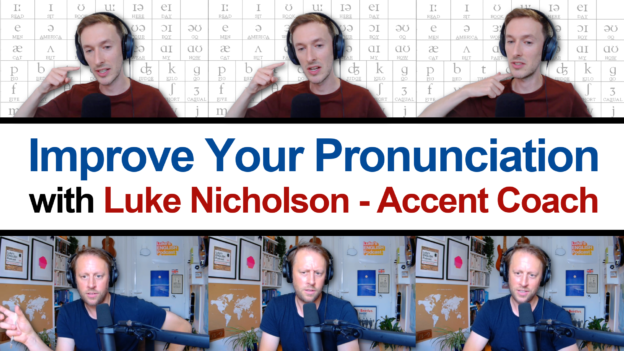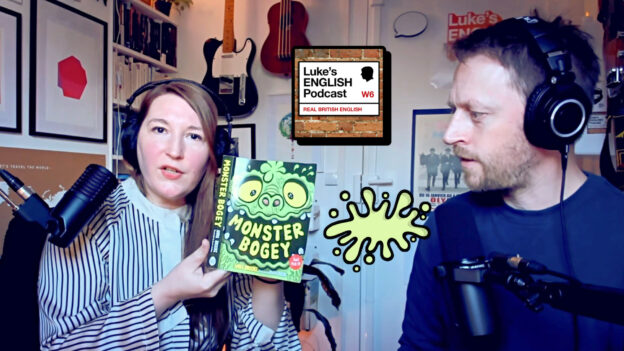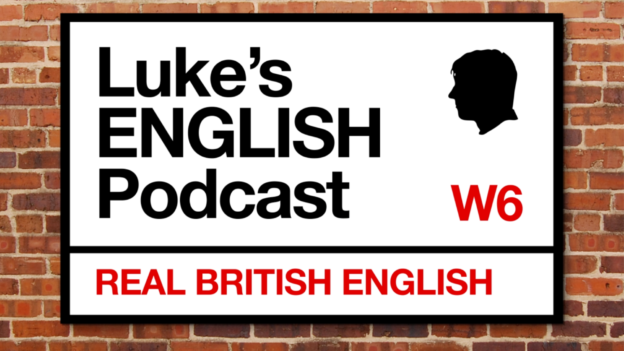A conversation with accent coach Luke Nicholson, including lots of insights, advice and conclusions about improving your pronunciation in English.
[DOWNLOAD]
☝️The audio version contains 20+ extra minutes
Questions to consider before listening
- In your language learning, how important is pronunciation for you?
- How much time do you put into practising it or researching it, compared to other things like grammar or vocabulary?
- How much do you know about the physical ways that we make sounds, and also the ways that we express pronunciation in writing – the phonetic alphabet?
- Think about your mouth, throat, tongue, teeth, nose or other parts. Do you know which parts are responsible for making different sounds in English?
- Try saying different vowel and consonant sounds, and see which parts are involved. Perhaps try counting to 20 and just notice the different parts of your mouth and areas near your mouth that you use, the shape of your lips and so on.
- Does English use sounds that you don’t use in your language? Which ones?
- Are there certain words which always seem to cause you trouble when you speak English? Which specific parts of those words cause the problem?
- How many different accents can you identify in English? Which one do you want to sound like? Why?
- Which accent would you like to have in English? What is that accent called? Why do you want that accent?
- Does it matter if, when you speak, people can tell which part of the world you are from, or that they can tell English isn’t your first language? To what extent does that matter to you, and why?
- What do you think is more important in pronunciation – intelligibility (being clear), or identity (expressing a certain identity with the way you speak).
- How can you actually go about improving your pronunciation? What steps can you take, and what resources can you use?
- What does it mean to have “good pronunciation” or a “good accent”?
- If you are an English teacher, how do you teach pronunciation? What place does it have in your lessons? What are your experiences of teaching it?
Summary of the main conclusions in the conversation
- Improving your pronunciation. According to Luke, it all boils down to these things.
- English is diverse in its pronunciation and accents, and the written word doesn’t always match how it sounds.
- You just have to accept things that seem inconsistent, irregular or complex in English pronunciation, and move forward. Those ‘irregularities’ will seem relatively normal when you get familiar with the language.
- Study pronunciation, but don’t look for “one rule to explain it all”. Instead find little patterns and other ways to help you remember English pronunciation bit by bit.
- Determine your pronunciation priorities and choose a target accent which you can aim for.
- Balance intelligibility (being clear) with expressing your identity through your accent.
- Familiarise yourself with the vocal tract and the sounds of English.
- Learn the phonemic chart and explore stress and intonation patterns.
- Don’t be put off by the phonemic chart. You probably have most of those sounds in your language. Look out for the ones which you don’t have.
- Identify which sounds in English you find difficult, or which cause people to misunderstand you, and focus on them.
- Practice making different sounds and think outside the box to find approaches that work for you.












